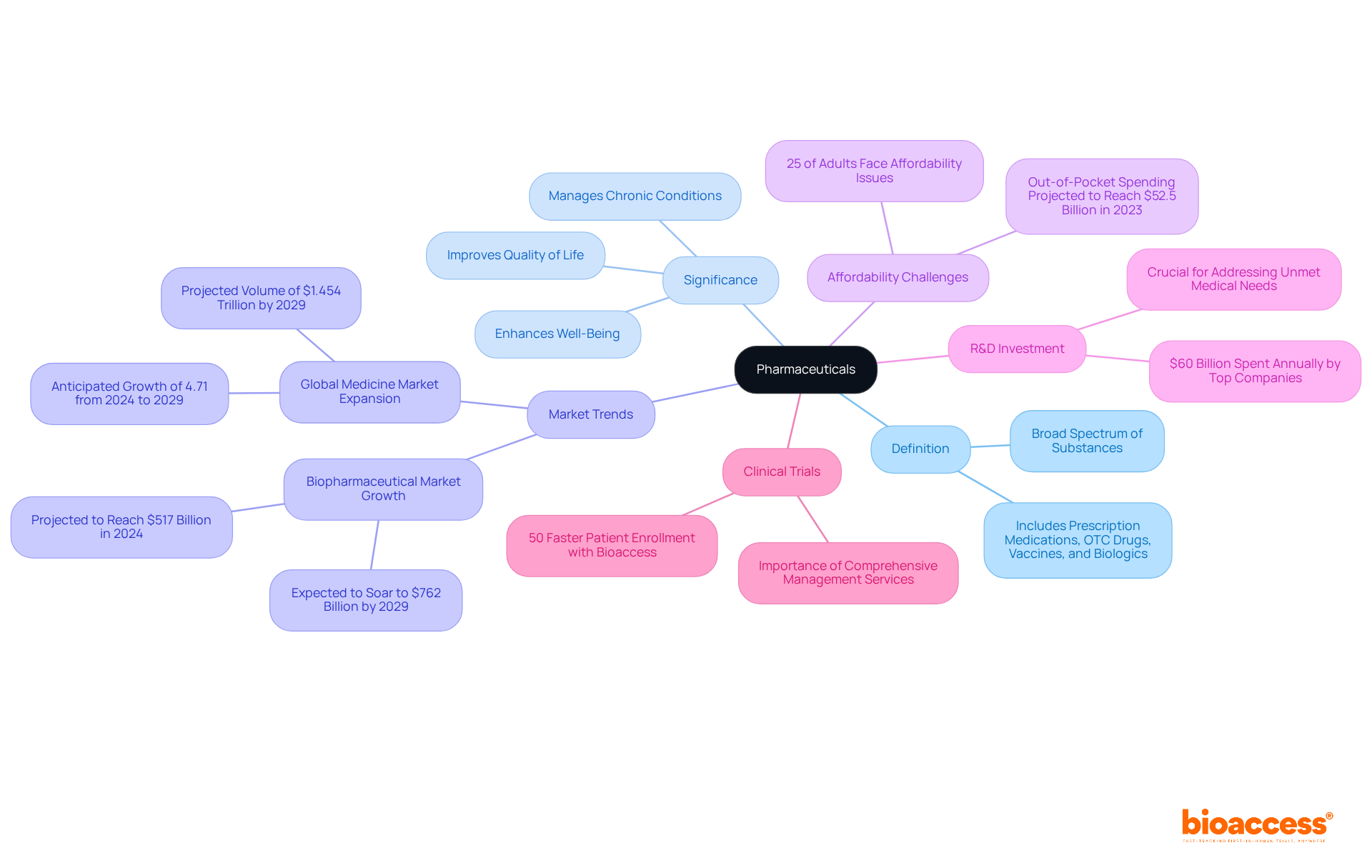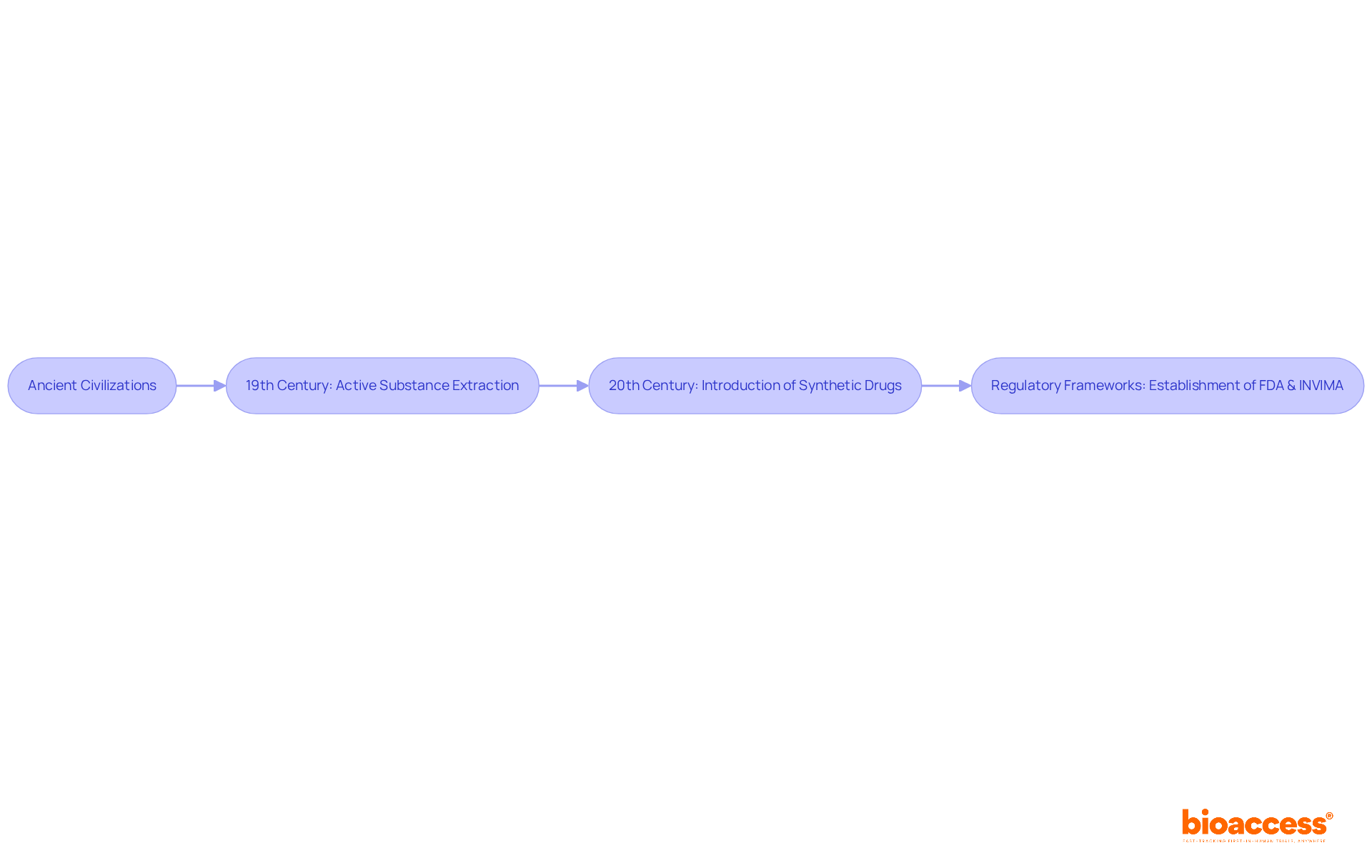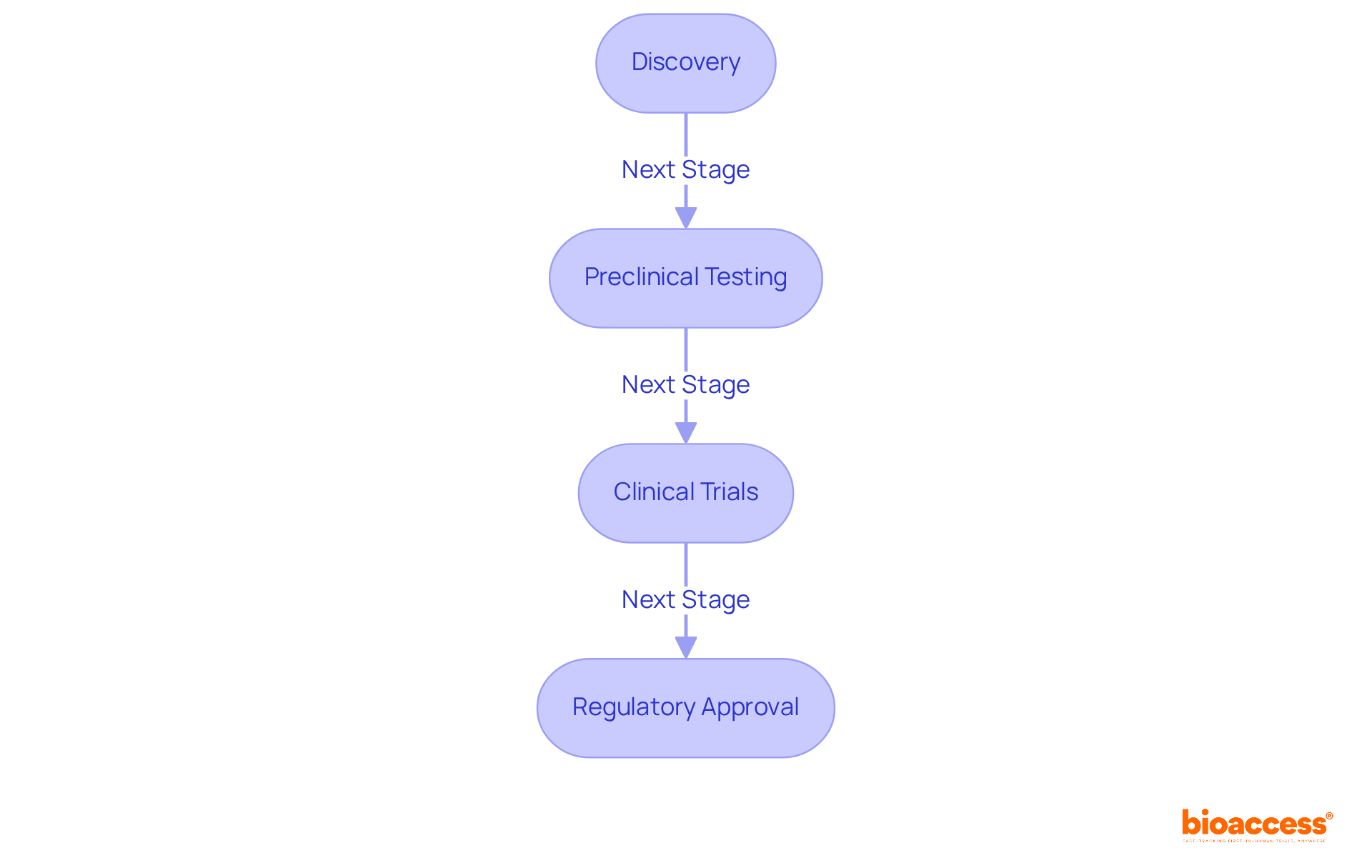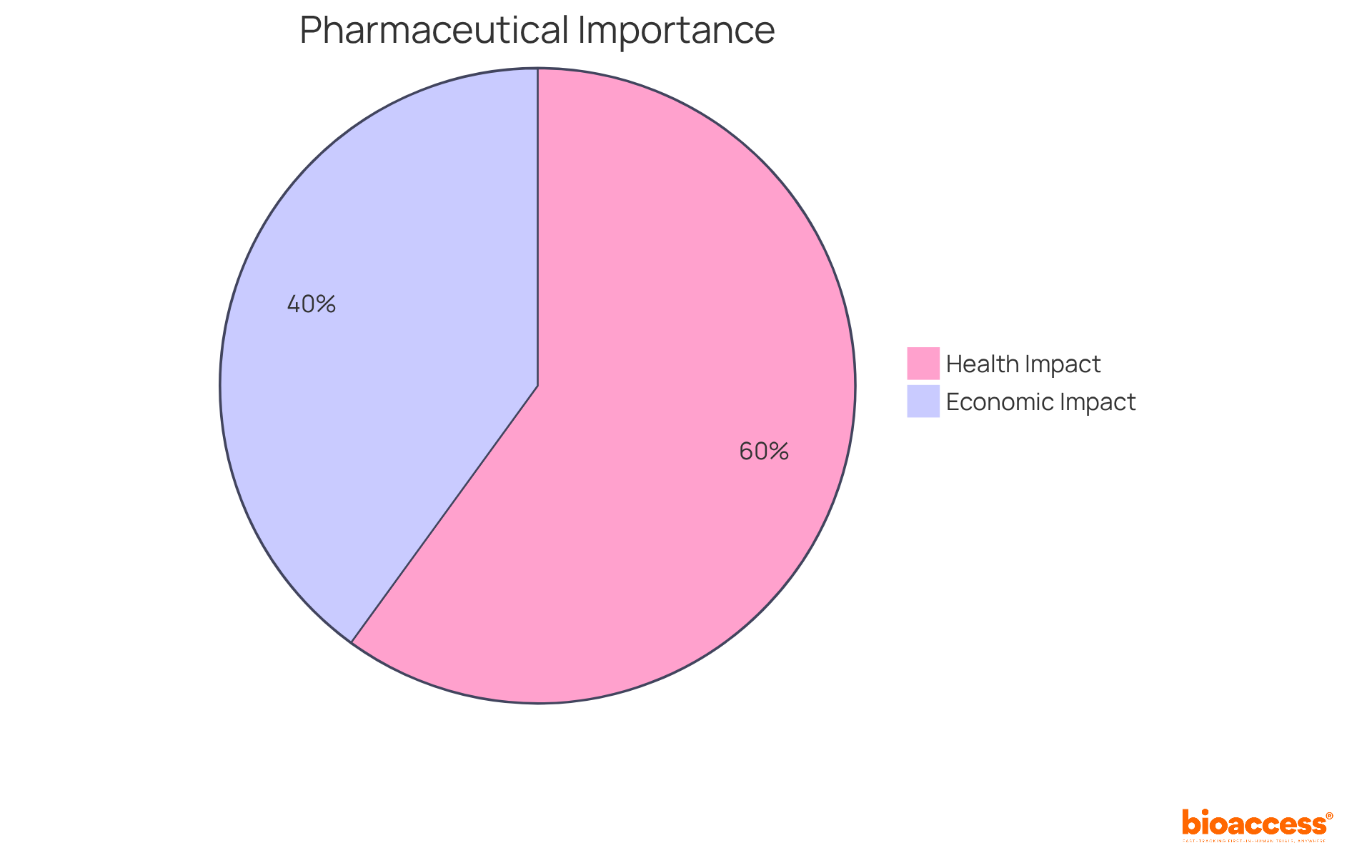


Pharmaceuticals encompass a broad spectrum of substances utilized for diagnosing, treating, or preventing diseases, which includes prescription medications, vaccines, and biologics. These elements are vital in enhancing health outcomes and improving quality of life. The article underscores their importance through projections of market growth, the economic impact of the drug sector, and sustained investments in research and development. Such factors illustrate the indispensable role that pharmaceuticals play in modern healthcare.
Understanding the concept of pharmaceuticals unveils a complex world where science intersects with healthcare, encompassing everything from prescription medications to groundbreaking biopharmaceuticals. As the industry is projected to expand to nearly $762 billion by 2029, the implications for public health and economic stability are profound.
However, with rising costs and accessibility issues, what does this truly mean for societies striving to balance innovation with affordability? This exploration delves into the core concepts of pharmaceuticals, underscoring their significance and the challenges that lie ahead.
To understand what pharmaceuticals mean, one must recognize that they encompass a broad spectrum of substances utilized for the diagnosis, treatment, or prevention of diseases and medical conditions. This category includes prescription medications, over-the-counter drugs, vaccines, and biologics. The significance of medications is underscored by their ability to greatly enhance well-being, manage chronic conditions, and improve patients' quality of life.
The medication sector is crucial in healthcare, driving advancements that address urgent health issues. For instance, the biopharmaceutical market is projected to reach nearly $517 billion in 2024 and could soar to almost $762 billion by 2029, reflecting the sector's robust growth and its critical role in developing therapies that enhance patient care.
Statistics reveal that approximately 25% of adults taking prescription drugs face difficulties affording their medications, highlighting ongoing challenges in accessibility and affordability within the industry. Moreover, the global medicine market is anticipated to expand by 4.71% from 2024 to 2029, achieving a volume of $1.454 trillion by 2029. This growth is essential for sustaining advancements in medical treatments and ensuring that innovative solutions are available to those in need.
Expert opinions emphasize that ongoing investment in research and development is crucial for addressing unmet medical needs, with leading drug companies collectively spending approximately $60 billion each year on R&D. This commitment not only fosters innovation but also enhances the industry's ability to deliver effective therapies that can transform lives.
In the context of clinical trials, comprehensive management services, such as those offered by bioaccess, are vital. These services include feasibility studies, site selection, compliance reviews, trial setup, import permits, project management, and reporting on study status and adverse events. By leveraging bioaccess's capabilities, companies can achieve 50% faster patient enrollment and realize significant cost savings, ultimately contributing to improved healthcare outcomes and economic growth.
In summary, understanding what pharmaceuticals mean is integral to modern healthcare, driving advancements that enhance health outcomes and quality of life for patients globally.

The development of medicines can be traced back to ancient civilizations, where natural substances were utilized for healing purposes. The contemporary drug sector began to take shape in the 19th century with the extraction of active substances, such as morphine from opium, highlighting what does pharmaceuticals mean. The introduction of synthetic drugs in the 20th century marked a significant turning point, leading to the development of antibiotics, vaccines, and advanced therapies.
Regulatory frameworks, including the establishment of the FDA in the United States and INVIMA (Colombia National Food and Drug Surveillance Institute) in Colombia, further shaped the industry and raise the question of what does pharmaceuticals mean by ensuring the safety and efficacy of pharmaceutical products.
INVIMA, established in 1992 under Colombia's Ministry of Health and Social Protection, is tasked with inspecting and overseeing the marketing and production of medical products, including medical devices. It has been classified as a Level 4 health authority by the Pan American Health Organization/World Health Organization, indicating its competence in health regulation functions.
Today, the industry continues to evolve with advancements in biotechnology and personalized medicine.

Understanding what does pharmaceuticals mean involves recognizing that the development of medications encompasses several essential stages:
Each phase is crucial for guaranteeing what does pharmaceuticals mean, ensuring that a medication is both safe and effective for public use. Regulatory bodies, such as the FDA and EMA, play a pivotal role in this process by mandating comprehensive data on what does pharmaceuticals mean regarding a medication's safety, efficacy, and manufacturing quality before approval can be granted. For instance, the FDA's Prescription Medication User Fee Act (PDUFA) has significantly reduced approval times, allowing priority reviews to be completed in as few as six months.
Market dynamics, including pricing strategies, competition, and patent laws, further influence what does pharmaceuticals mean in the landscape. In 2024, the FDA authorized 50 new medications, with nearly half categorized as first-in-class, underscoring the continuous innovation within the industry. However, the approval process is not without challenges; approximately 12% of substances entering clinical trials ultimately receive FDA approval, raising the question of what does pharmaceuticals mean in terms of the high stakes involved in medication development.
Recent trends indicate a shift towards biologic substances, which now represent an increasing portion of FDA approvals, reflecting changes in therapeutic emphasis and market demand. The interplay between regulatory requirements and market forces significantly shapes what does pharmaceuticals mean in terms of drug promotion and patient access. This makes a comprehensive understanding of these components vital for stakeholders in the field.

To understand what pharmaceuticals mean, it's important to recognize their vital role in enhancing public health by providing treatments that cure diseases, manage chronic conditions, and elevate overall quality of life. The economic influence of the drug sector is considerable, contributing billions to global economies through job creation, research and development, and healthcare spending. In 2022, the sector's revenue reached $1.48 trillion, underscoring its significance, which is comparable to the GDP of developed nations such as Spain. Moreover, efficient medications can substantially reduce healthcare expenses by preventing hospital stays and complications arising from unmanaged conditions. For instance, the U.S. biopharmaceutical sector alone supported over 217,000 jobs through foreign direct investment in 2022. Continuous innovation in pharmaceuticals is crucial for addressing emerging health challenges and enhancing public health outcomes, leading to discussions about what pharmaceuticals mean in terms of the industry's essential role in both health and economic spheres.

Pharmaceuticals are integral to modern healthcare, comprising a diverse range of substances tailored for the diagnosis, treatment, and prevention of diseases. Understanding the foundational concepts of pharmaceuticals allows for an appreciation of their profound impact on enhancing patient well-being, managing chronic conditions, and ultimately elevating the quality of life for individuals worldwide.
This article underscores the rapid expansion of the pharmaceutical industry, propelled by breakthroughs in drug development and biotechnology. Ongoing investment in research and development is paramount, as leading companies endeavor to address unmet medical needs and provide effective therapies. Furthermore, the historical evolution of pharmaceuticals illustrates how regulatory frameworks have shaped the industry, ensuring medication safety and efficacy while adapting to the ever-changing market dynamics.
The implications of pharmaceuticals extend beyond individual health, significantly affecting economic factors such as job creation and healthcare spending. As the industry continues to innovate and evolve, recognizing the necessity of accessible and affordable medications becomes increasingly vital. Engaging with the complexities of pharmaceuticals is essential for stakeholders, policymakers, and the public, fostering a deeper understanding of how these advancements can be leveraged to enhance health outcomes and stimulate economic growth.
What are pharmaceuticals?
Pharmaceuticals are a broad spectrum of substances used for the diagnosis, treatment, or prevention of diseases and medical conditions, including prescription medications, over-the-counter drugs, vaccines, and biologics.
Why are pharmaceuticals significant in healthcare?
Pharmaceuticals significantly enhance well-being, manage chronic conditions, and improve patients' quality of life, making them crucial in healthcare advancements.
What is the projected growth of the biopharmaceutical market?
The biopharmaceutical market is projected to reach nearly $517 billion in 2024 and could increase to almost $762 billion by 2029.
What challenges do adults face regarding prescription medications?
Approximately 25% of adults taking prescription drugs experience difficulties affording their medications, highlighting issues of accessibility and affordability in the industry.
How is the global medicine market expected to grow?
The global medicine market is anticipated to expand by 4.71% from 2024 to 2029, reaching a volume of $1.454 trillion by 2029.
Why is investment in research and development important in the pharmaceutical industry?
Ongoing investment in research and development is crucial for addressing unmet medical needs, fostering innovation, and enhancing the industry's ability to deliver effective therapies.
How much do leading drug companies spend on research and development annually?
Leading drug companies collectively spend approximately $60 billion each year on research and development.
What services do comprehensive management services, like those offered by bioaccess, provide in clinical trials?
These services include feasibility studies, site selection, compliance reviews, trial setup, import permits, project management, and reporting on study status and adverse events.
What benefits do companies gain from utilizing bioaccess's capabilities in clinical trials?
Companies can achieve 50% faster patient enrollment and significant cost savings, contributing to improved healthcare outcomes and economic growth.